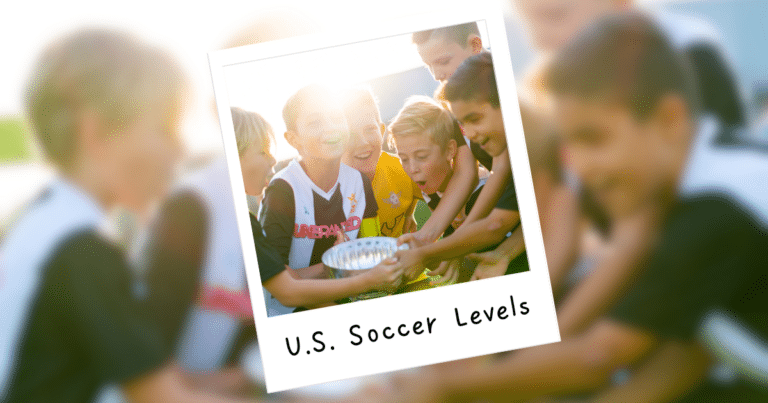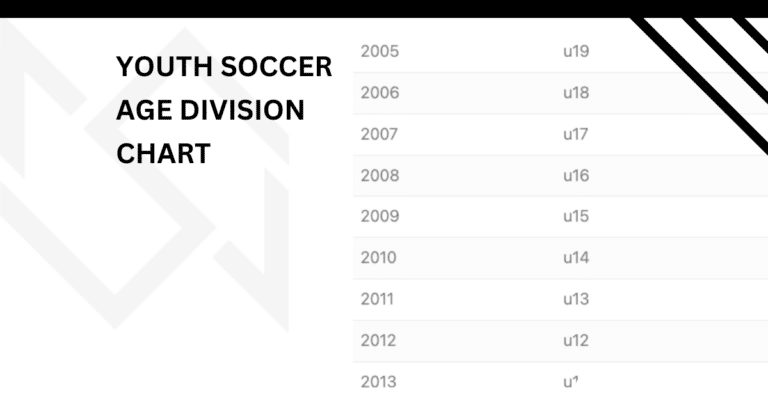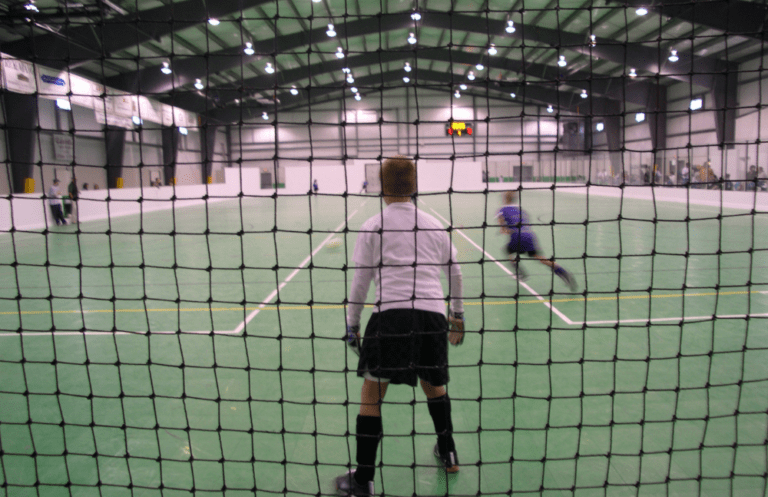How to Become a Soccer Coach

Are you wondering how to become a soccer coach? Many athletes owe a great deal of their success to their coaches and mentors.
As with every profession, coaching has its ups and downs. The experience might be extremely satisfying one day and completely discouraging the next. But, at the end of the season or year, you’ll reflect back and realize it was all worth it.
Key Takeaways From This Article:
- The role of a soccer coach is to lead their team, organize practices, and put the players in the best possible position to succeed.
- The pathway for a club coach in the U.S. starts at the grassroots level and goes to the pros.
- Volunteering as a coach for your town will also have an impact. This option may be better suited for your lifestyle.
As you progress in your coaching career, you’ll find opportunities at different levels and leagues.
For many of us passionate about soccer, coaching is a way to incorporate the game into our daily lives. In this article, we’ll explore how you can become a soccer coach for various age groups and the impact you’ll have.
What is the Role of a Soccer Coach?

A soccer coach leads a team and teaches them new strategies and tactics to help them compete in matches.
They may be employed by a school, soccer club, or sports organization and work with players at various skill levels, from beginner to professional.
The following are the typical responsibilities of a youth and professional soccer coach:
- Game-play improvement through strategic planning of training sessions and player development
- Creating tactics and formation strategies
- Fostering a positive team environment and inspiring players
- Managing player substitutions
- Providing individual advice and mentorship
- Taking disciplinary action if necessary
- Holding players accountable to their soccer goals
- Coordinating communication of training and game times
- Being a sounding board to the players (not parents)
- Analysis of game footage to determine possibilities for improvement (for more competitive players)
Coaching Pathway in the United States
The soccer coach pathway in the United States is governed by the United States Soccer Federation (USSF). The USSF offers a variety of coaching licenses, each of which has specific requirements and focuses on different levels of coaching.

Essentially, the U.S. soccer coach pathway is divided into six levels:
- Grassroots: The USSF Grassroots courses are designed for coaches of players aged 6-13 years old and focus on the basic principles of the game. The courses available at this level include 4v4, 7v7, 9v9 and 11v11.
- D License: The D License is an introduction to coaching and is required to lead teams from U6-U19 at a beginner to intermediate level.
- C License: After obtaining a D License for a full year, coaches will be eligible to receive their C License. This license is designed to prepare higher skill level players from ages U11-U19.
- B License: The B License is designed for coaches working with players at the elite level and focuses on the technical and tactical aspects of the game. This can be obtained after a full year of holding the C License and coaching for at least three years.
- A License: The A license is split into ‘youth’ and ‘senior’ pathways. The A Senior License puts more attention towards coaching players ages 19 or older. The A Youth License is more geared towards developing U13-U19 players in a high performance environment.
- Pro License: This is the final license to earn in the U.S. and includes coaching at the highest levels of national and international professional soccer.
To progress through the levels, coaches will need to complete the required coursework and pass the required exams. For more details, check out the U.S. Soccer Learning Center for coaches.
How to Become a Youth Soccer Club Coach

To become a youth soccer coach in the U.S., you should consider the following steps:
- Start the process of obtaining a coaching license. To start, you’ll want to look for Grassroots coaching requirements and courses provided by U.S. Soccer.
- Gain real-world experience by volunteering or assisting with youth soccer teams. These teams typically don’t require a coaching license but they do provide background checks (for safety reasons).
- Network and build connections within the youth soccer community and surrounding soccer club organizations.
- Consider obtaining a higher education degree in sports science or a related field. Although this is not always necessary for youth coaching positions, it can help accelerate things.
- Continuously update your knowledge and skills through playing, and attending coaching courses and workshops specifically for youth soccer coaching.
- Continuously look for job opportunities at local clubs, schools, and recreational programs.
- Be patient, as opportunities to coach youth teams may be limited and competitive in your area.
- Be prepared to fill a variety of roles, from being a head coach to an assistant coach, or even club coordinator.
At the youth level of soccer, there are so many layers in today’s game. Depending on what league and age you want to coach, you may be required to obtain a C, B, or A coaching license.
Like any profession, there are rungs of the ladder you need to climb in order to level up. Each license builds upon the skills of the previous one. If you are patient with the process, you can have a huge impact on kids at different age groups and levels.
What Does a Soccer Coach Do?
Successful coaching demands a wide range of abilities and responsiblities
Depending on the level you coach, you may have a variety of resources at your disposal. You may have a support team under you who can help take care of the admin side of coaching.
At the most basic levels, it could be just you as head coach (and maybe an assistant coach).
Whichever level you are at, here are some essential skills to keep in mind:
Teaching
Players need to learn the game from their coaches. They need to know all there is to know about the game to help them grow as players, both technically and tactically.
Teaching moments can happen at practices, games, and in the parking lot. Remember, as a youth coach, you’re in a position to influence a player’s development.
If you can develop a passion for soccer, you’ve already done a great job!

Player Management
Every person has their own unique style of play and how they react to particular situations.
To motivate an underconfident athlete, a coach has to know exactly what approaches will work.
Some players must be left alone, while others must be called aside and spoken to. Or, some players may need public praise.
One of the most important skills is knowing how to handle different circumstances for different people.
Team Management
A coach needs to be able to make decisions quickly and in the best interest of the team. They’re in charge of the team’s formation and putting players in positions to succeed.
Leadership is not about pleasing everyone but bringing out the best in each player for the benefit of the team.
Conditioning
Fitness and conditioning are usually under the purview of the head coach. In-season conditioning requires coaches to ensure their team can play 20, 40, 80, or 90-minutes. But, at the same time, make sure they aren’t overworked where their bodies can’t perform effectively.
During the off-season, you might put together a program to enhance or maintain the conditioning from the past season.
Planning and Time Management
An efficient training session requires proper planning and strict adherence to the overall strategy.
Sessions that have too much downtime are less productive. Our youth players are becoming less and less attentive so it’s always beneficial to keep everyone involved as much as possible!
The best practices are when players are constantly moving and communicating.
The key is to balance out training sessions with individual drills and team drills.
Analysis Skills
For older youth teams, analyzing data from games or practices may help the team, especially if used effectively. Numbers are difficult to dispute. With their help, coaches may select the best possible team, optimize player positioning, and ultimately secure victory.
There are now modern technologies that will help record matches and track player stats. If offered, coaches should take advantage of these technologies.
What Characteristics Define a “Bad” Soccer Coach?
Understanding what makes a lousy coach is just as important as learning what makes a good one.
Players will pick up on a coach’s negative traits, and the team culture will be harmed as a result.
Awareness is everything. Several examples of such characteristics are:
- An obsession with victory at any cost – Nobody likes to lose, yet it often happens. If a coach lives and dies by the scoreboard, they’ll never get over the setbacks, and the team will be left frustrated.
- Know-it-all – The truth is that nobody knows everything. The “know-it-all” coach shows little interest in learning and pays no attention to their players. This person is so set in their ways that they refuse to consider any alternatives. This results in a dictator-style of coaching. Though they may see initial success, the players will eventually lose interest in playing for the coach.
- Favoritism – Some players will naturally have a stronger connection with their coaches than others. This behavior is inherent in human conditioning. Perhaps they feel that one of their players, whether a child or an adult, is significantly better than the others. To treat certain players better than others is detrimental to the team.
- Yelling on the sidelines – Coaches will do themselves a disservice if they are constantly yelling on the sidelines. Especially at younger ages, screaming and belittling players will work against them. They may get them to hustle more for that split second but there’s a good chance that they won’t want to play for them next year. Do this every season and coaches may find the soccer organization turning on them because they are losing players from the program.
- “The parent pleaser” – I’m a soccer Dad and we are the worst (generally speaking). Most parents think their child is the next Messi. With this comes parents who will speak up for their children if they aren’t getting enough playing time. Keep in mind that coaches are putting in the hours and this is their team. They can listen and provide feedback but ultimately it’s their call. Coaches don’t need to please any parent. They are put in their position to coach and inspire the team!
Are You Ready to Coach Soccer?
A soccer coach’s role is vital to any team’s success. A coach’s responsibilities span beyond simply calling plays during a game. They also train the team, develop strategies, decide who will play, and react quickly to changing situations.
Additionally, you can make a significant impact on a child’s life. You can provide a different perspective from the player’s parents. A great coach acts as a mentor to the youth. They are able to connect and motivate them like few can.
While we’re on the coaching topic, I’d like to share some advice I was given years ago: “If you want to do anything for a living, you better start right now.” So, if you have a burning desire to do anything, you should pursue your coaching career no matter what age you are.
Coaching soccer is one of the most rewarding things you can do with your life. It might not be a forever position but it can certainly make a positive impact in your local community or beyond!
Common Questions About Coaching
Yes. Compared to other major sports, soccer has fewer rules. A good youth coach will inspire their players, provide good tactics, and teach during games and practices.
Absolutely. Most town and rec programs don’t require a degree or license. As you move into club organizations, certain coaching licenses may need to be obtained.
Not really! At the start of the season, you can set the tone of the season. You can request closed practices and open the line of communication the way you want. The key is to communicate what you want to happen at the start of the season.

Written By: Beau Bridges
Beau is the founder of SoccerNovo, dedicated to helping players and parents navigate the youth soccer landscape. As a former youth coach and soccer parent, he shares insights on player development, recruiting, and the ever-evolving soccer scene in the U.S.
Let’s connect






